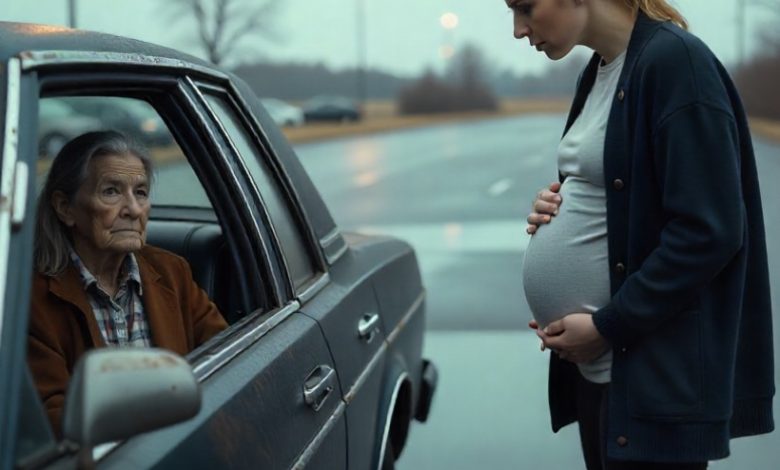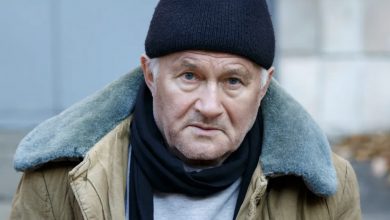I slept in my car for months until a lawyer changed everything

After losing my house in a flood, my daughter told me, “Just stay in your car a little longer – I’m busy.” And so I did. For months I lived in that car, waiting, hoping things might change. But when the time finally came and I moved into a new, beautiful home of my own, everything was different. When Jane and her husband showed up with boxes, saying, “This will be perfect for the baby’s room,” I had already changed the locks – and rewritten my will.
The cardboard I slept on had softened from weeks of body heat and the occasional drip from the Honda’s leaking sunroof. At night, I pressed my hand against the window, watching my breath form little clouds on the glass. Outside, streetlights threw long shadows across the deserted parking lot behind an old, closed grocery store.
Jane’s voice still rang in my head from our last call. “Just sleep in your car a little longer, Mom. I’m busy with the baby and everything else. You understand, don’t you?”
Yes, I understood more than she realized. The flood had taken everything from me: my house on Maple Street, my family photos, my mother’s old china—forty years of memories, gone in a single night. Insurance covered the building, but not the life inside it. At sixty-two, all I had left was my twelve-year-old Honda Civic and a few bags of clothes rescued from the mud.
At first, Jane seemed kind. “Of course you can stay with us for a while, Mom. Just until you get back on your feet.” But “a while” stretched into weeks, then into tension. Soon, her husband Frank began leaving little notes about the water bill and groceries, taped to the refrigerator like warnings. The house no longer felt like a home.
One morning, I packed my few belongings and returned to the Honda. Jane was busy feeding Emma, her toddler, and hardly looked up from the high chair. “That’s probably for the best,” she said flatly. “Frank’s been so stressed about work. You know how he gets.”
I knew exactly how Frank got. He got cruel. He got loud. And he treated me like a burden.
Now, curled up in the backseat of my car with only a winter coat for warmth, I wondered if this was how my own mother had felt in her last years: invisible, unneeded, discarded when care became inconvenient. My phone buzzed. A message from Jane. Hope you’re doing okay. Frank got the promotion! We’re looking at bigger houses. Baby number two is due in the spring!
I stared at the glowing screen until it went black again.
Every morning I drove to the library, the only warm and quiet place I could go. The librarian, Rosa, had stopped asking questions weeks earlier. She only nodded when I walked in. I spent hours at the computer, filling out job applications, searching for assistance programs, trying to stitch together a broken life.
It was there, on a gray Tuesday, that everything changed.
Dear Louise Qualls, the email began. The sender’s name made me blink: Harrison & Blackwell, Estate Attorneys. My heart pounded as I read on. We represent the estate of your late aunt, Tilly Brendle. We have been trying to reach you regarding an inheritance left to you in her will.
I froze in my plastic chair. Aunt Tilly, my mother’s sister, had moved to California decades earlier. We hadn’t spoken in years. I thought she had forgotten me. But she hadn’t.
The phone call to the lawyer’s office didn’t feel real. Yet it was true. Tilly had left me her entire estate: a house in Pasadena, savings, investments. The lawyer listed numbers so large they didn’t even feel possible. “The property is worth around eight hundred and fifty thousand dollars,” he said. “The accounts add another three hundred thousand. Altogether, you’re inheriting well over a million.”
I hung up and sat frozen. Around me, life at the library went on as usual—people reading, printing, whispering to each other. And there I sat, a woman living in her car, suddenly a millionaire.
That night I checked into a cheap motel and slept in a real bed for the first time in months. I took a hot shower that seemed to wash months of sadness from my skin. Staring into the mirror, I barely recognized myself—thin, pale, eyes tired. But there was something new in my face, too. A spark.
Jane sent another message. Haven’t heard from you. Everything okay?
I typed back: I’m fine. Just figuring things out.
A week later, I stepped off a plane into the California sun. Pasadena was warm and bright, even in December. The house on Craftsman Avenue was more beautiful than I imagined—a 1920s bungalow with oak trees shading the yard. Attorney Robert Rice met me there, surprised when I arrived.
Inside, the house was filled with books, plants, and antiques. It felt lived-in but loved. On the dresser I found photos of Tilly, smiling through the years, and in many of them she was with another woman. “Was my aunt married?” I asked.
Mr. Rice cleared his throat. “She lived with Patricia for nearly forty years. They were partners until Patricia passed away.”
I looked at the photos of the two women holding hands, happy together. For the first time in months, I smiled.
By the time we finished the paperwork, I owned a house worth nearly a million and savings of more than three hundred thousand. But what mattered most was that I had keys again. I had a home.
My neighbor Sharon welcomed me kindly. Over coffee, she said, “Your aunt talked about you all the time. She worried about you. She knew you were strong but also that sometimes even strong people need help.”
That night, standing on my porch, I called Jane.
“Mom, finally! I was worried. Where are you?”
“California. I inherited a house.”
Silence. Then Jane’s first question: “How much money?”
Not I’m so glad you’re safe. Not I’m happy you have a home again. Just How much?
I answered simply: “Enough.”
Jane’s tone shifted quickly. “That’s amazing! This solves everything. You can come home now. We’ll help you settle.”
But I wasn’t sure “home” was where she thought it was.
Weeks passed. I painted rooms, planted flowers, hung my mother’s quilt on the wall. The house began to feel like mine. My phone buzzed constantly with messages from Jane, but I often ignored them.
Finally, she called. “Mom, you can’t just disappear. Emma misses you. The new baby will need you, too. Come home.”
“I had no home when I was sleeping in my car,” I reminded her.
“Don’t be dramatic,” she snapped. “That was temporary.”
But three months in a car hadn’t felt temporary. It had felt endless.
When Jane and Frank came to California, their smiles couldn’t hide their real intentions. Over dinner, they spoke about houses they wanted to buy, about investments, about “family wealth.” Then came the request: fifty thousand, maybe sixty. “We’d pay you back, of course,” Jane promised.
I listened quietly. They saw me not as a mother, but as a bank.
The next morning they came to the house again. Frank opened a briefcase with notes and numbers. “This place is too big for one person. You should sell and move back to Ohio. Help your family build something real.”
“Help my family build wealth,” I repeated slowly.
“Exactly,” he said, as if it were obvious.
I looked at Jane. “When I was sleeping in my car, did you think Emma needed her grandmother then?”
Her face flushed. “That’s not fair.”
But it was fair. It was the truth.
I stood up. “Jane, I love you. I love Emma. I will love the new baby. But I will not give away my life just so yours is easier. I will not buy my place in this family. Love shouldn’t come with a price tag.”
They left, angry and silent.
That evening, I called Mr. Rice. “I’d like to change my will,” I told him.
“Of course. What changes?”
“I want to create a scholarship for women over fifty who are starting over. And the house—I want it to go to someone who will love it, not just use it.”
I looked across the yard at Sharon trimming her roses. “I think I already know who that is.”










